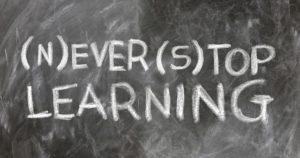In today’s fast-paced and competitive world, unlocking your full professional development strategies is essential for professional growth and success. Whether you’re a recent graduate starting your career or a seasoned professional looking to take the next step, there are proven professional development strategies that can help you reach your full potential. This article will explore nine effective strategies that will empower you to enhance your professional development.
Table of Contents
- Understanding Your Strengths and Weaknesses
- Setting Clear Goals and Objectives
- Continuous Learning and Skill Development
- Effective Time Management
- Building a Strong Professional Network
- Effective Communication Skills
- Adaptability and Resilience
- Mentorship and Guidance
- Balancing Work and Life
Understanding Your Strengths and Weaknesses
One of the first steps when thinking about unlocking your professional development strategies is to gain a deep understanding of your strengths and weaknesses. Self-awareness is key to personal growth. Conduct a self-assessment to identify what you excel at and where you need improvement. This knowledge will guide you in making informed decisions about your professional development journey.
Setting Clear Goals and Objectives
Having a clear sense of direction is crucial. This entails the creation of well-defined objectives that adhere to the SMART criteria, which stands for Specific, Measurable, Achievable, Relevant, and Time-bound. These SMART goals not only serve as a guiding compass in your professional development strategies, but also lay down a structured roadmap that is instrumental in maintaining your focus and unwavering motivation as you work towards realizing your full potential.
Continuous Learning and Skill Development

Professional Development Strategies
In the rapidly evolving professional landscape, staying up to date with the latest trends and acquiring new skills is essential. Staying attuned to the latest industry developments and proactively acquiring new competencies is not just advisable but an absolute necessity.
Therefore, it is highly recommended that you make a steadfast commitment to the philosophy of lifelong learning, which can be realized through engagement in a variety of learning avenues such as enrolling in courses, participating in workshops, and dedicating time to self-directed study.
The proactive endeavor to broaden and diversify your skillset is not only a testament to your dedication but also a strategic move that will undoubtedly elevate your standing and worth within your respective industry, ensuring your sustained relevance and competitiveness.
Effective Time Management for Professional Development Strategies
Time can be included with professional development strategies. That invaluable and irreplaceable resource, holds a paramount position in the realm of professional advancement, and the mastery of effective time management stands as a pivotal skill with the potential to exert a profound influence on your career development. It is not just about recognizing the significance of time but also about harnessing it to your advantage.

Professional Development Strategies
In this pursuit, it is highly recommended to adopt a multifaceted approach. Prioritization, the act of discerning what tasks warrant your immediate attention and which can be deferred, takes center stage. Creating meticulously planned schedules that not only allocate time to each task but also accommodate unforeseen contingencies is another facet of this time management prowess. Furthermore, the elimination of distractions, whether they are in the form of digital diversions or interruptions from colleagues, becomes a vital component in the quest to make the most of your working hours.
By integrating these professional development strategies into your daily routine, you embark on a journey of optimizing your productivity and ensuring that every minute invested in your professional endeavors is maximized, ultimately translating into significant strides in your career growth and development.
Building a Strong Professional Network
The art of networking stands as a cornerstone of professional development strategies, wielding an influential impact that cannot be overstated. It’s not merely a casual acquaintance but a well-orchestrated effort to forge meaningful connections in your career journey. These connections can encompass a diverse array of individuals, including colleagues, mentors, industry peers, and even acquaintances from various spheres of life.

Professional Devlopment Strategies
The process requires dedication, patience, and strategic planning. As you invest your time and energy in this endeavor, you will soon realize that your network is not just a web of contacts but a repository of invaluable insights, a treasure trove of opportunities, and a reliable source of unwavering support.
It opens doors to opportunities that might have remained otherwise hidden, giving you access to new ventures, collaborations, and career advancements. Furthermore, your network becomes your refuge in times of challenge, providing emotional encouragement, advice, and a helping hand when needed.
In essence, the significance of networking transcends mere interactions; it is a dynamic, ongoing process that empowers you with the resources and relationships essential for your professional growth, making it an indispensable tool in your career development arsenal.
Effective Communication Skills
Effective communication acts as the glue that binds teams together, creating an environment where creativity flows freely, conflicts are amicably resolved, and consensus is easily reached.
Furthermore, this indispensable skill transcends collaboration to touch the zenith of leadership. As you harness the power of communication, you become a beacon of influence, a leader who can rally teams, motivate colleagues, and articulate a vision that inspires others to follow. Your words become not just instruments of information but catalysts of transformation.
Effective communication weaves its way through every challenge and triumph. It is not just a cornerstone; it’s a pillar upon which you build your path to success and leave an indelible mark on your career landscape. That’s why communication is one of the essential pieces to professional development strategies.
Adaptability and Resilience
Other professional development strategies include the ability to adapt to change, especially with an optimistic and forward-looking mindset, becomes a defining trait. It’s not just about accommodating change but welcoming it as an opportunity for growth and improvement. In this constantly shifting terrain, those who embrace change with open arms become the trailblazers, setting a precedent for innovation and advancement.
Equally vital is the resilience that enables you to rebound from setbacks and adversities. Learning from failures and using them as stepping stones to greater success is what sets you apart from the crowd. Your capability to bounce back from challenges not only builds your character but also demonstrates your mettle as a professional, making you a beacon of inspiration for those around you.
Adaptability and resilience are the threads that not only keep you resilient but also paint a vibrant portrait of your growth, making you a formidable force in an ever-changing work environment.
Mentorship and Guidance

Professional Development Strategies
The role of a mentor extends far beyond mere advice; it encompasses a valuable relationship that can be instrumental in your career growth. A mentor serves as a seasoned navigator who can help you chart your course through the complexities of your chosen path, drawing from their own wealth of experiences and wisdom.
Mentors not only offer insights but also provide a guiding light as you navigate the intricacies of your career. They act as a trusted source of counsel, aiding you in making informed decisions that can shape your professional trajectory. Moreover, by learning from their experiences and anecdotes, you gain the unique opportunity to avoid potential pitfalls and capitalize on proven professional development strategies, ultimately accelerating your own growth and development.
Balancing Work and Life
Realizing your full potential extends beyond the boundaries of your career; it encompasses your holistic well-being. A key component of this all-encompassing journey is the maintenance of a harmonious work-life balance. Striking this equilibrium is paramount for not only thriving in your professional pursuits but also for nurturing your overall health and happiness.
In essence, work-life balance is more than a concept; it’s a lifeline. It serves as a safeguard against burnout and exhaustion, ensuring that you have the energy, enthusiasm, and resilience needed to excel in your career. By intentionally carving out time for your personal life and embracing self-care practices, you fortify the foundations of your professional development strategies and growth.
These moments of rejuvenation are not distractions but the essential fuel that propels you towards your full potential, as they recharge your spirit, enabling you to bring your best self to every professional endeavor.
Conclusion
Unlocking all your professional development strategies is a continuous journey. By understanding your strengths and weaknesses, setting clear goals, continuously learning, managing your time effectively, building a professional network, enhancing communication skills, being adaptable and resilient, seeking mentorship, maintaining work-life balance, and embracing change and innovation, you can make significant progress in your career.
Frequently Asked Questions
- How can I identify my strengths and weaknesses?
-
- Self-assessment tools, feedback from colleagues, and personal reflection are effective ways to identify your strengths and weaknesses.
- Why is setting clear goals important for professional development?
-
- Clear goals provide direction and motivation, helping you stay focused on your growth and progress.
- What is the significance of effective communication in the workplace?
-
- Effective communication fosters collaboration, resolves conflicts, and enhances leadership skills, all of which are vital for professional development.
- How do I find a suitable mentor for my career?
-
- Look for experienced professionals in your field, attend networking events, and seek referrals to find a mentor who aligns with your goals.
- Why is work-life balance important for professional development?
-
- Maintaining work-life balance helps prevent burnout and ensures that you have the energy and motivation to pursue your professional goals.
*For additional details regarding professional development training in Tampa or any other location across the United States, please reach out to us at legacyonetraining.com or simply click on our contact page.


0 Comments